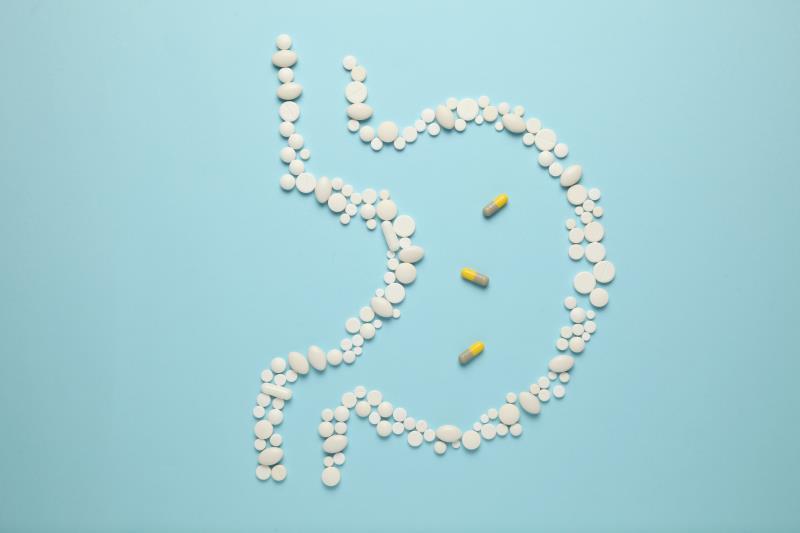
Use of proton pump inhibitors (PPIs) and histamine-2 receptor antagonists (H2RAs) significantly reduces gastrointestinal (GI) bleeding in critically ill patients, reveals a systematic review and meta-analysis. However, reduction in bleeding is unimportant in low-risk patients.
Additionally, both GI bleeding prophylaxes appear to increase the risk of pneumonia.
The investigators searched Medline, PubMed, Embase, Cochrane Central Register of Controlled Trials, trial registers and grey literature through March 2019 for randomized controlled trials that compared GI bleeding prophylaxis with PPIs, H2Ras or sucralfate vs one another or placebo or no prophylaxis in critically ill adults.
Two independent reviewers screened studies for eligibility, extracted data, and assessed risk of bias. Critical oversight of the systematic review was provided by a parallel guideline committee, including identifying outcomes important to patients. Random-effects pairwise and network meta-analyses were performed, and GRADE was used to assess certainty of evidence for each outcome. The former was utilized when results differed between low and high risk of bias studies.
Seventy-two trials were identified, comprising 12,660 patients. Compared with placebo or no prophylaxis, both PPIs (odds ratio, 0.62, 95 percent confidence interval [CI], 0.42–0.89; 3.3-percent fewer for highest risk and 2.3-percent fewer for high-risk patients; moderate certainty) and H2RAs (OR, 0.46, 95 percent CI, 0.27–0.79; 4.6-percent fewer for highest risk and 3.1-percent fewer for high-risk patients; moderate certainty) resulted in clinically important reductions in GI bleeding among patients at highest risk (>8 percent) or high risk (4–8 percent) of bleeding. [BMJ 2020;368:l6744]
Both prophylaxes could also increase the risk of pneumonia compared with no prophylaxis (OR for PPIs, 1.39, 95 percent CI, 0.98–2.10; 5.0-percent more; low certainty; OR for H2Ras, 1.26, 95 percent CI, 0.89–1.85; 3.4-percent more; low certainty). Neither PPIs (OR, 1.06, 95 percent CI, 0.90–1.28; 1.3-percent more; moderate certainty) nor H2RAs (OR, 0.96, 95 percent CI, 0.79–1.19; 0.9-percent fewer; moderate certainty) appeared to have an impact on mortality.
“Otherwise, results provided no support for any effect on mortality, Clostridium difficile infection, length of intensive care stay, length of hospital stay or duration of mechanical ventilation (varying certainty of evidence),” the investigators said.
This review incorporated more trials, including the SUP-ICU trial, which is both the largest study to date addressing prophylaxis and at low risk of bias. [N Engl J Med 2018;379:2199-2208]
The SUP-ICU trial found a potential subgroup effect, which suggested an increased mortality with PPIs among the sickest patients. However, application of the suggested criteria showed a low credibility for this subgroup effect, according to the investigators. [BMJ 2010;340:c117]
“This systematic review provides important information for weighing the potential benefits and harms of alternative interventions for gastrointestinal bleeding prophylaxis in adult critically ill patients,” the investigators said.
“Key messages include the likelihood that no intervention influences mortality; that PPIs and H2RAs likely reduce bleeding; that reduction in bleeding is higher in patients with higher baseline risk of bleeding; and that resolving a number of issues, including the possibility that prophylactic agents increase the risk of pneumonia, will require additional randomized controlled trials,” they added.